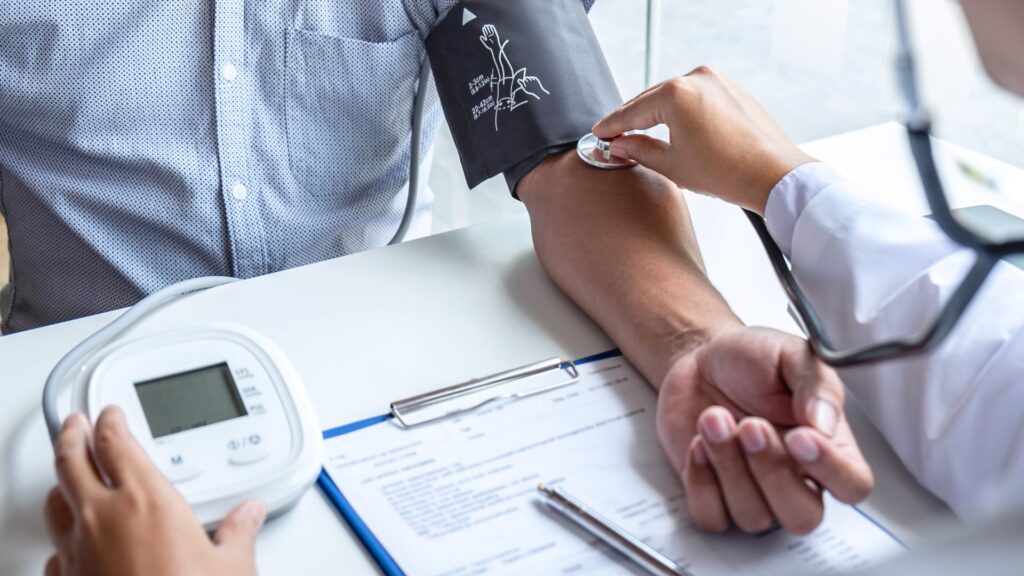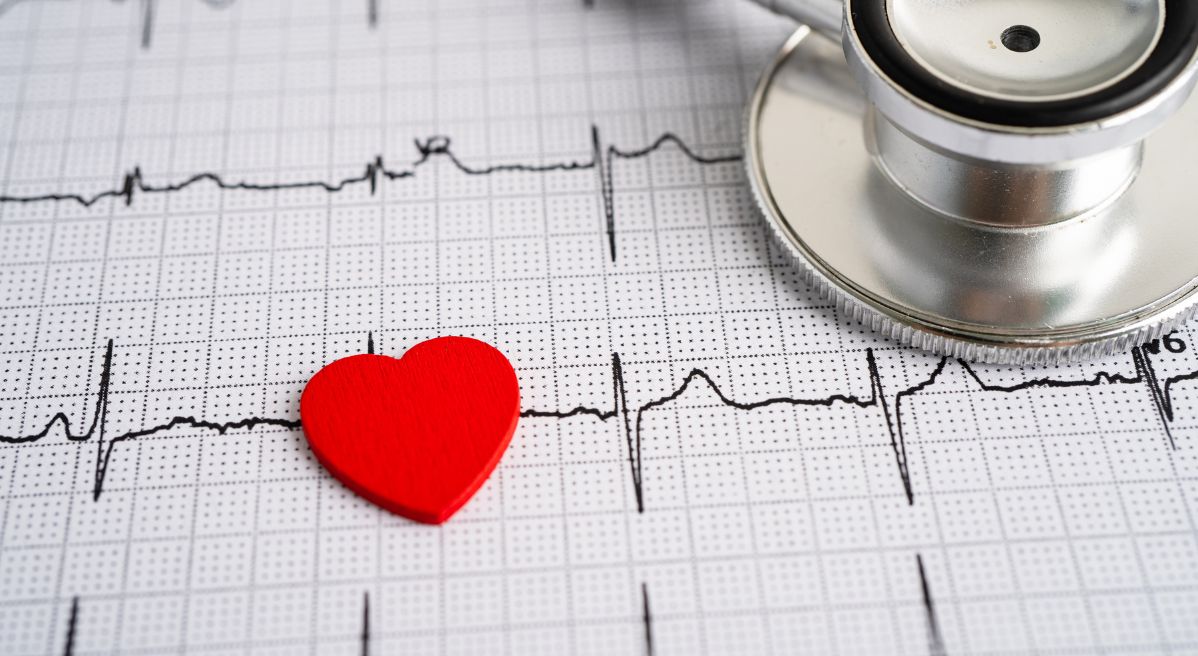When we think of stress, most of us immediately consider negative emotions that cause stressful situations at work or in private life. However, stress can also be caused by some positive events, such as sports events, when a person becomes excessively excited unexpectedly.
As a result of this “shock,” the heart reacts intensely, and the patient may experience various symptoms or even have a heart attack. It often seems that patients underestimate stress as one of the risk factors for heart disease and do not know how to cope with it properly.
Mind and high blood pressure: How are they connected?
When adrenaline and cortisol rush through the body during a moment of stress, it prepares for a reaction to unusual events. Heart rate and energy levels increase, while blood pressure and sugar levels rise. These changes enable us to focus and react in the moment. However, for those experiencing chronic stress, that moment turns into weeks and months, leaving consequences on the body. With frequent stressful situations, there is a constant increase in blood pressure and glucose levels, which are two conditions well-known as triggers for heart diseases.
The way we react to stress affects blood pressure levels
When our body is in a stressful situation, it produces a series of hormones. These hormones cause an immediate rise in blood pressure, leading to a faster heartbeat and narrowing of blood vessels. There is no evidence that stress itself directly causes chronic high blood pressure, but the way we respond by adopting unhealthy habits can contribute to heart attacks or strokes.
Certain lifestyle habits can be linked to high blood pressure, such as smoking, excessive alcohol consumption, and unhealthy eating. Additionally, certain cardiovascular diseases can arise as a result of health conditions caused by stress, such as anxiety or depression.
There is no direct evidence linking these conditions to the development of high blood pressure. However, the hormones produced in the body during stressful situations can damage arteries and indirectly contribute to heart diseases.
Blood pressure increases during stressful situations can be dramatically high. However, once the stress subsides, blood pressure values return to normal. Nevertheless, if such situations are frequent and blood pressure consistently rises, these fluctuations can lead to damage to blood vessels, the heart, and the kidneys. These episodic incidents can harm organs and blood vessels in a similar way to chronic high blood pressure.
Activities that reduce stress can also have an impact on reducing blood pressure
Reducing stress may not immediately result in lower blood pressure, but it will certainly have a positive effect on overall well-being. Stress management is a skill that everyone should master in this modern age filled with daily challenges. Some techniques that can help you cope better with stress include:
- Simplify your daily schedule – if you constantly feel rushed and overwhelmed, it’s time to revise your to-do list. Remove less important tasks that consume a lot of time and cause a lot of frustration. Learn to recognize priorities.
- Proper breathing, yoga, and meditation – learn meditation techniques and use deep and proper breathing to control stress in your body. Allow yourself to disconnect from worries and obligations for at least half an hour daily and indulge in complete relaxation. These activities can help lower systolic blood pressure.
- Exercise – through physical activity and the satisfaction we derive from it, whether it’s walking, running, or engaging in a team sport, we can reduce stress levels. Before starting any exercise routine, consult your cardiologist and undergo any necessary examinations.
- Get enough sleep – sleep is a remedy for many ailments, and when we consistently lack sufficient sleep, it can have an adverse effect on our heart and overall well-being.
- Find time for socializing with family and friends – it’s important to have frequent contact with family and friends and spend quality time socializing and relaxing. These pleasant moments will help you relieve stress.
When it comes to stress, the most important thing is to understand over time how it affects our body and which organs it negatively impacts. This is an important step in the fight for your health, so it’s crucial to identify sources of stress in your life in order to minimize their impact and learn how to cope with them. Regardless of the level of stress and life events that you cannot always control, it’s important to maintain a healthy lifestyle and undergo regular cardiological check-ups.
Pulse Cardiology Center is here for you and your heart
When we meet new patients, we ask a series of questions to learn as much as possible about their lifestyle and habits. Answers regarding diet, exercise, and habits provide us with more information to guide the patient on making changes for better health. These answers also clearly indicate various risk factors, which we identify together with the patient and strive to reduce.
Our message to all those who experience heart-related symptoms is not to postpone a cardiological examination but to take care of their health as soon as possible and allow our experts to assist them. If you are concerned about the impact of stress on your body, schedule an appointment at Pulse Cardiology Center in Block A, New Belgrade, and with the best specialists and state-of-the-art diagnostic equipment, learn all about the condition of your heart.





